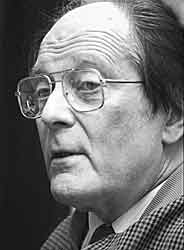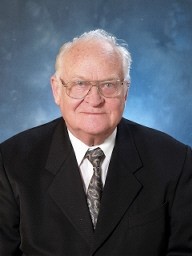
Pärnu is the fourth largest city in Estonia. Tallinn, the capital city of Estonia, is 128 kilometres (80 mi) north of Pärnu, and Tartu, Estonia's second largest city, is 176 kilometres (109 mi) east of Pärnu. Located in southwestern Estonia on the coast of Pärnu Bay, an inlet of the Gulf of Riga in the Baltic Sea. It is a popular summer holiday resort with many hotels, restaurants, and large beaches. The Pärnu River flows through the city and drains into the Gulf of Riga. The city was served by Pärnu Airport.

Jaan Kross was an Estonian writer. He was nominated several times for the Nobel Prize in Literature during the early 1990s. He won the 1995 International Nonino Prize in Italy.

The Governorate of Estonia was a governorate of the Russian Empire in what is now northern Estonia. It bordered the Livonian Governorate to the south and Saint Petersburg Governorate to the east.

Konstantin Päts was the most influential politician of interwar Estonia, and served five times as the country's head of government. He was one of the first Estonians to become active in politics and started an almost 40-year political rivalry with Jaan Tõnisson, first through journalism with his newspaper Teataja, later through politics. He was condemned to death during the 1905 Revolution, but managed to flee first to Switzerland, then to Finland, where he continued his literary work. He returned to Estonia, but had to spend time in prison in 1910–1911.

Friedrich Fromhold Martens, or Friedrich Fromhold von Martens, also known as Fyodor Fyodorovich Martens in Russian and Frédéric Frommhold (de) Martens in French was a diplomat and jurist in service of the Russian Empire who made important contributions to the science of international law. He represented Russia at the Hague Peace Conferences and helped to settle the first cases of international arbitration, notably the dispute between France and the United Kingdom over Newfoundland. As a scholar, he is probably best remembered today for having edited 15 volumes of Russian international treaties (1874–1909).

Georg Ots was an Estonian singer, actor and People's Artist of the USSR (1960).

Georg Friedrich von Martens was a German jurist and diplomat. Educated at the universities of Göttingen, Regensburg and Vienna, he became professor of jurisprudence at Göttingen in 1783 and was ennobled in 1789. He was made a counsellor of state by the King of Westphalia in 1808, and in 1810 was president of the financial section of the council of state of the kingdom of Westphalia. In 1814 he was appointed privy cabinet-councillor by the king of Hanover, and in 1816 went as representative of the king to the diet of the new German Confederation at Frankfort.
David Samoylov, pseudonym of David Samuilovich Kaufman was one of the most notable representatives of the War generation of Russian poets.

The Czar's Madman is a 1978 novel by Estonian writer Jaan Kross.

Jaan Teemant was an Estonian lawyer and politician.

Amandus Heinrich Adamson was an Estonian sculptor and painter.
Estonian literature is literature written in the Estonian language The domination of Estonia after the Northern Crusades, from the 13th century to 1918 by Germany, Sweden, and Russia resulted in few early written literary works in the Estonian language. The oldest records of written Estonian date from the 13th century. Originates Livoniae in Chronicle of Henry of Livonia contains Estonian place names, words and fragments of sentences. The Liber Census Daniae (1241) contains Estonian place and family names. The earliest extant samples of connected Estonian are the so-called Kullamaa prayers dating from 1524 and 1528. The first known printed book is a bilingual German-Estonian translation of the Lutheran catechism by S.Wanradt and J. Koell (1535). For the use of priests an Estonian grammar was printed in German in 1637. The New Testament was translated into southern Estonian in 1686. The two dialects were united by Anton Thor Helle in a form based on northern Estonian. Writings in Estonian became more significant in the 19th century during the Estophile Enlightenment Period (1750–1840).

Jüri Vilms was a member of the Estonian Salvation Committee and the first Deputy Prime Minister of the Republic of Estonia. Empowered by Maapäev the Salvation Committee issued the Estonian Declaration of Independence on February 24, 1918 in the middle of a political power vacuum created by the retreating Russian and advancing German troops during World War I. The German forces taking over the country didn't recognize the independence of Estonia. The Salvation Committee went underground, Jüri Vilms volunteered to go to Finland to take funds and instructions to the Estonian missions working to get diplomatic recognition for the newly sovereign nation. According to an "official" version, he was captured on reaching the Finnish coast and executed by German troops in Helsinki. According to the latest research Jüri Vilms may have been executed by a unit of the Swedish Brigade in Hauho. Estonia gained its independence after the German troops were withdrawn from Estonia due to the German Revolution and following Estonian War of Independence ended with Peace Treaty of Tartu.

Treading Air is Jaan Kross' thirteenth novel. He tells the story of the generation of Estonians with which he grew up. The unhealed wounds of recent Estonian history has been to the fore in Kross' short stories and in such novels as Wikmani poisid, Mesmeri ring and Väljakaevamised (Excavations). It was first translated into English in 2003 by Eric Dickens.

The following is an alphabetical list of articles related to the Republic of Estonia.

Karl K. Rebane was an Estonian physicist.

Aleksander Kunileid, was an Estonian composer. He is one of the founding figures of Estonian choral music.

Helene Vannari is an Estonian stage, radio, television and film actress.
Jaan Rekkor is an Estonian stage, film and television actor.

Jüri Krjukov was an Estonian actor.

















